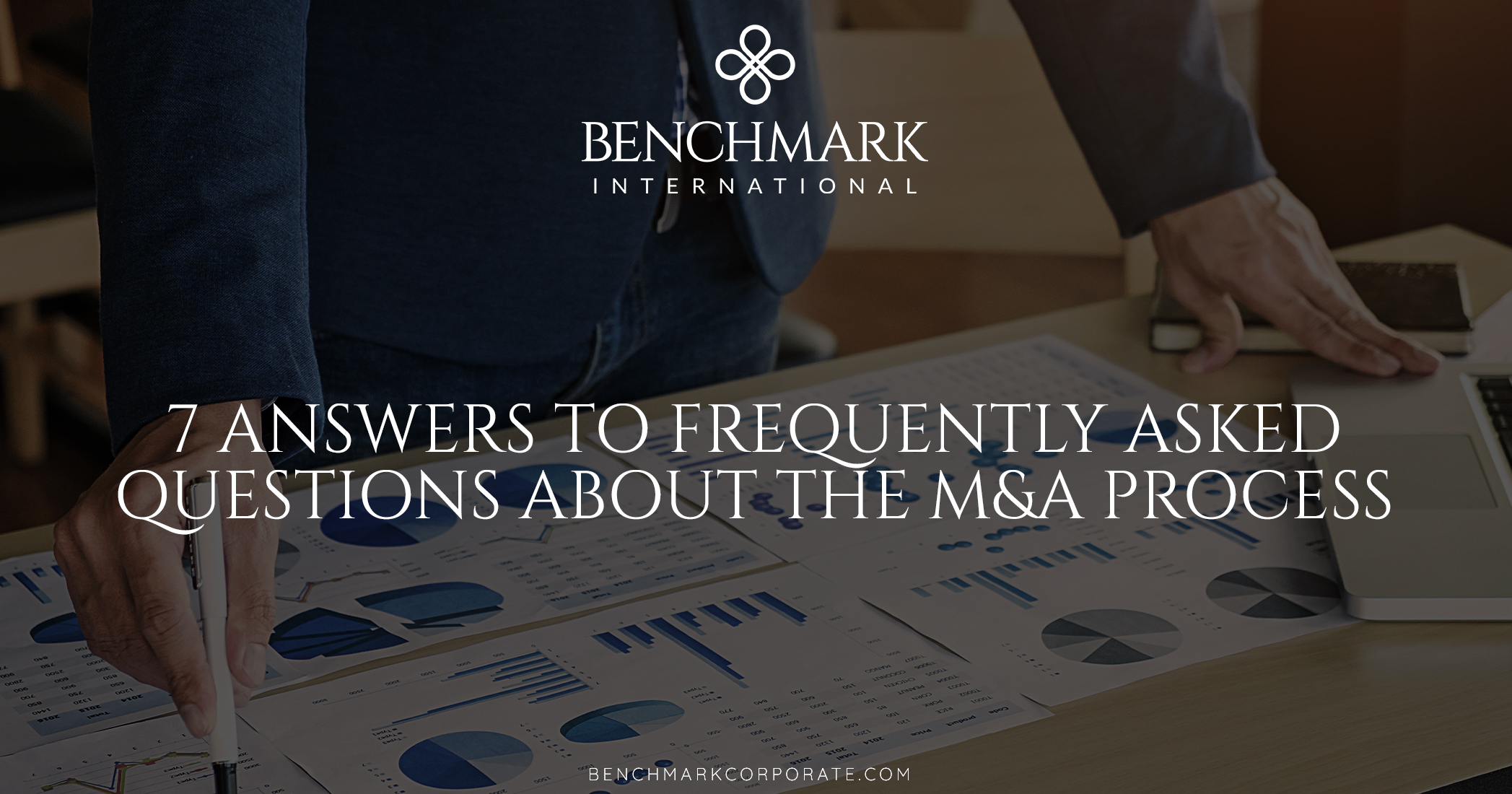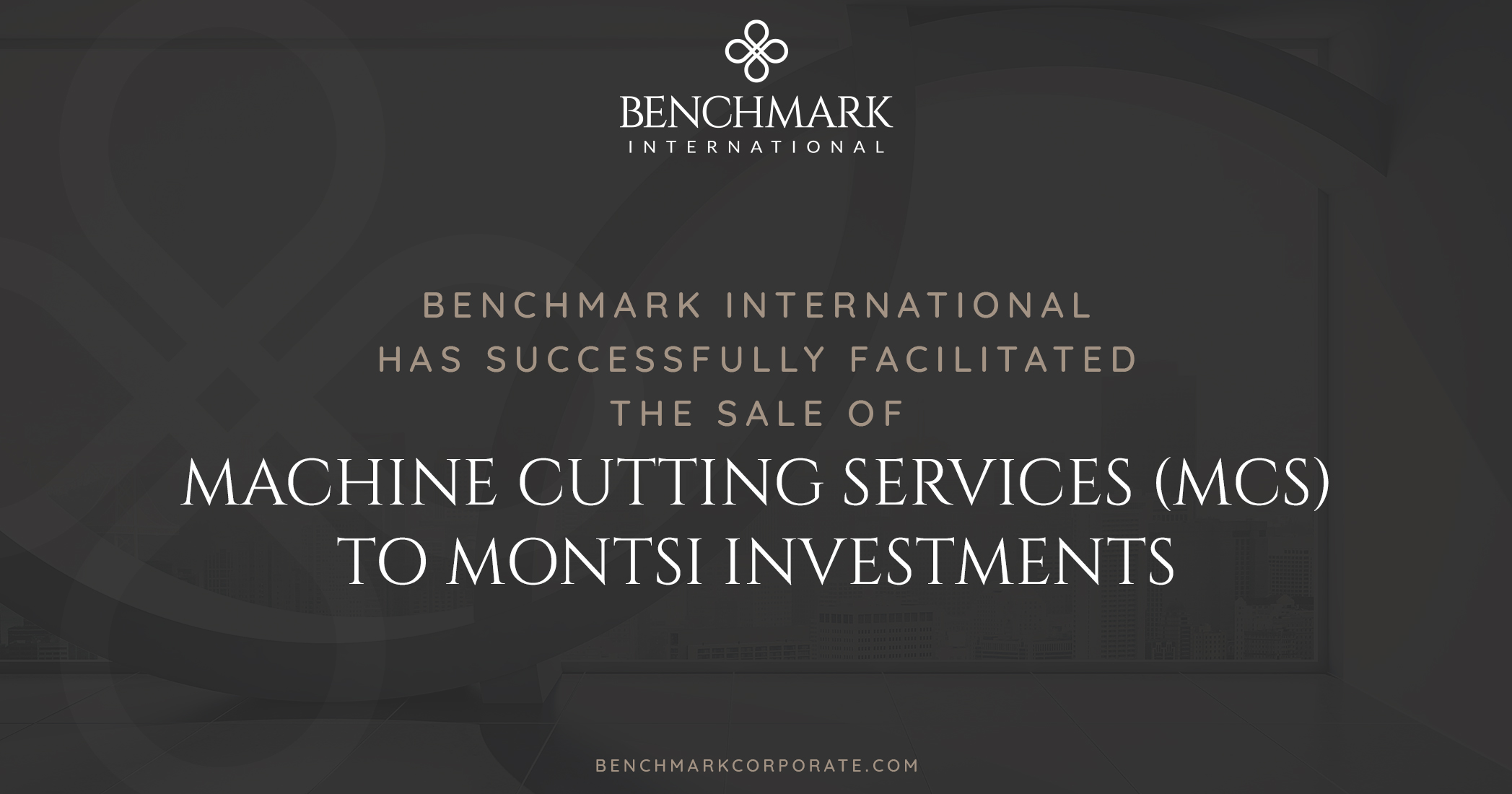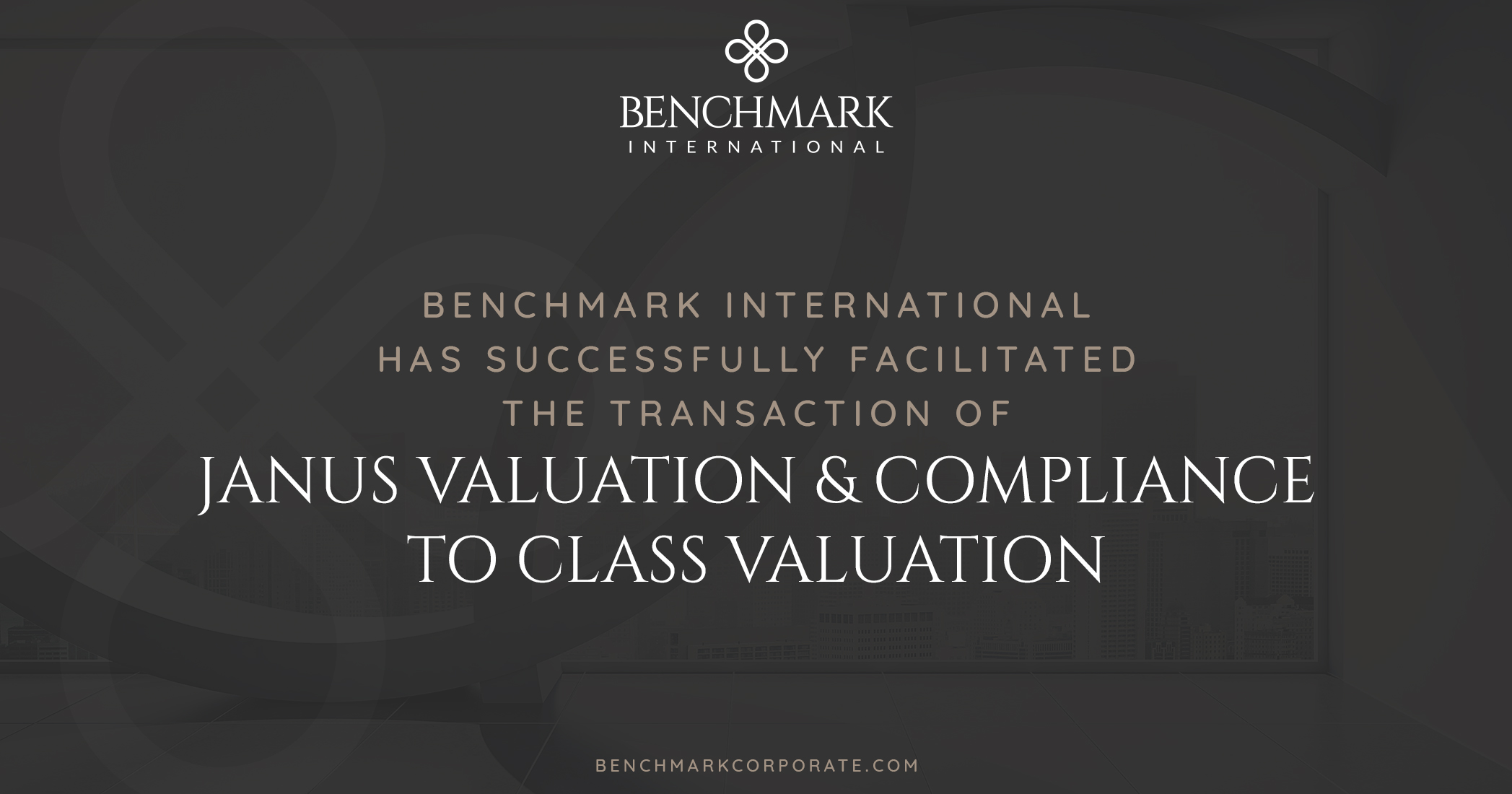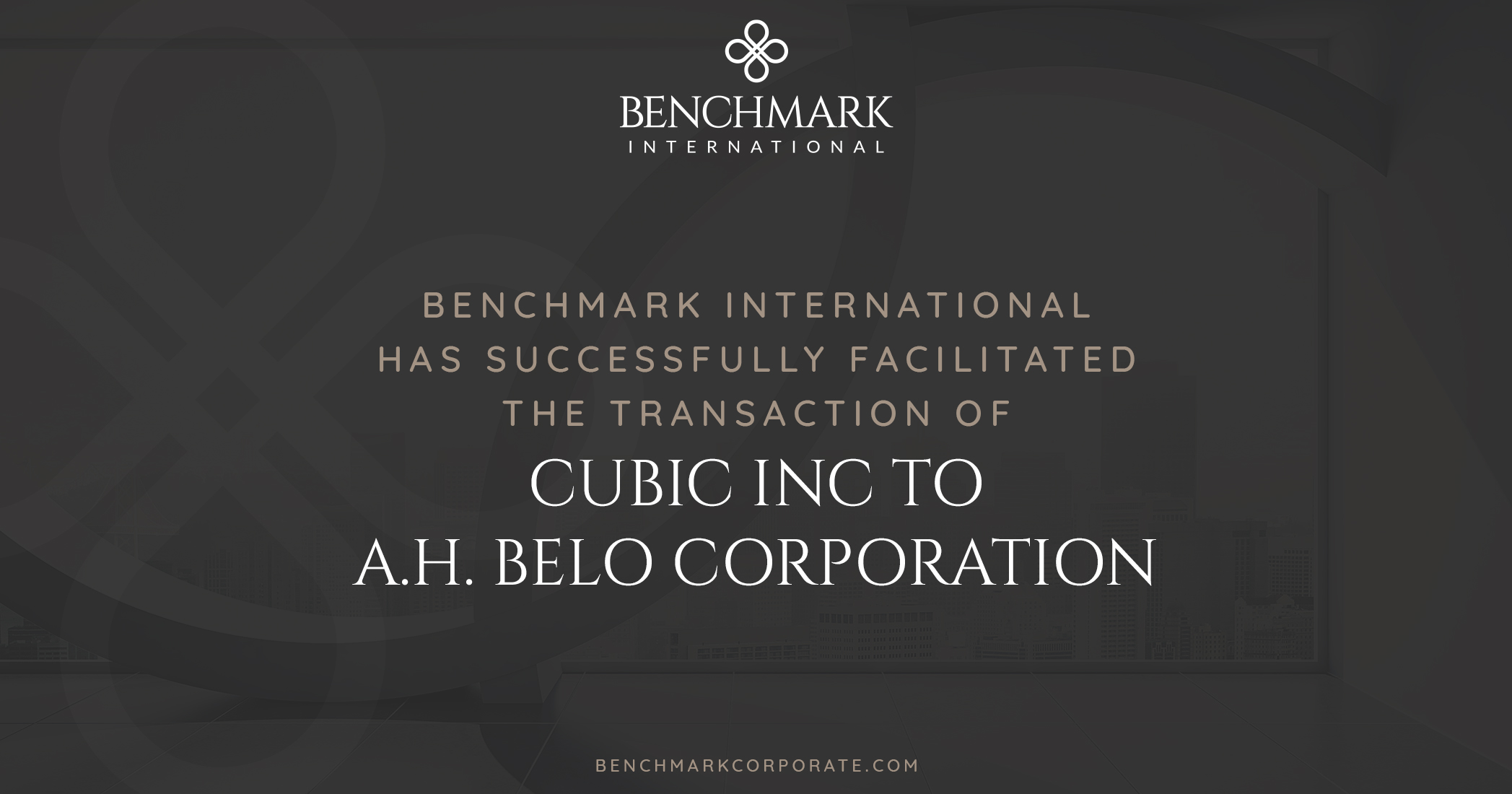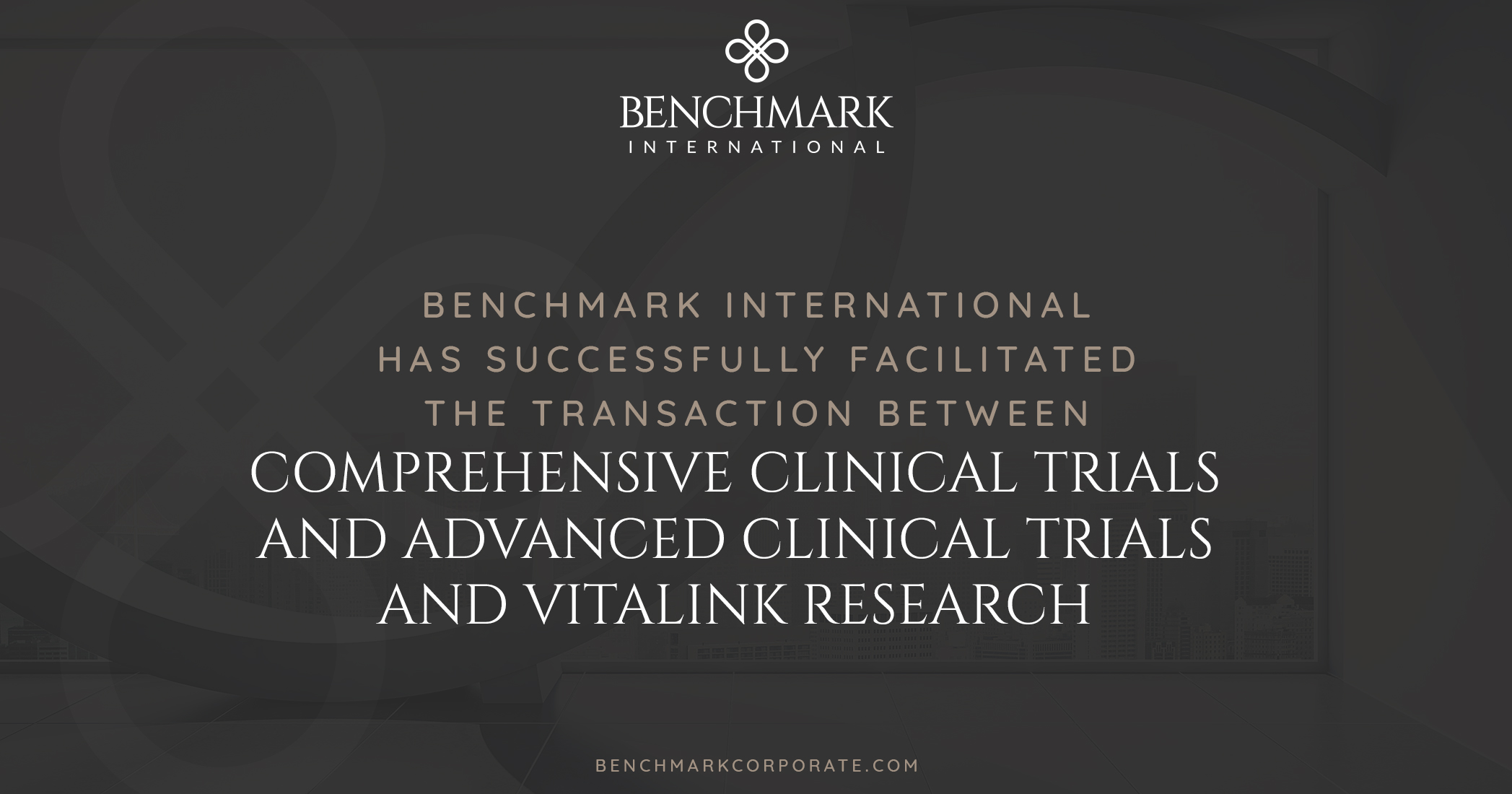When it comes to the M&A Process, sellers often times have many questions. Here is a list of 7 frequently asked questions about the M&A process.
READ MORE >>Archives
7 Answers to Frequently Asked Questions about the M&A Process
The Value In Hiring An M&A Advisor
When the time has come for you to sell your business, there are plenty of reasons why you do not want to embark on this journey alone. Enlisting the help of a trusted M&A advisor can make a world of difference in the process and, most importantly, the results.
A Better Process.
Selling a business takes time. It can take up to one year to complete a sale. Think about what you need to be doing during that time. You still have a company to run, and this is the most critical time for your company to be running smoothly and performing well. Selling a company requires a great deal of time and attention. For an owner, this time and attention needs to be focused on the day-to-day running of your business. You do not want be so preoccupied with the sale of your company that you end up neglecting the business that ultimately should be generating maximum results during this time. If your company falls short of expectations, it could result in a botched deal. Basically, you need to be operating your business as though you are not going to sell.
When you form a partnership with an experienced M&A advisor such as Benchmark International, you will have an expert dedicating their time to the sale of your business, so you can remain a strong leader for your company. You will still be heavily involved in the process, never missing an update on opportunities and negotiations. The difference is that you will not be bogged down by certain details, time critical deadlines on the deal won’t pull you away from key business situations, and your advisor will be there to resolve any issues that arise along the way.
Essentially, an M&A advisor is going to do all the heavy lifting for you. They will prepare the necessary marketing materials, find quality prospective buyers, market your business, negotiate terms, manage the due diligence process, arrange the closing, and even help you plan the transition and your exit strategy. Your time is precious and so is your business. Give them both the attentiveness they deserve.
Better Results.
Experienced buyers know what to look for in a company. They know how to get the most value from a merger or acquisition. Meanwhile, it is likely that you have never sold a business before, giving the buyer a major advantage in negotiating a sale. You need someone in your corner whose wholehearted motivation is to exceed your goals and get you the most value for your company. This includes the exploration of the full spectrum of your options, and even knowing when to walk away from a deal.
In a recent study titled The Value of Middle Market Investment Bankers:
- 100 percent of owners who sold their businesses with the help of an M&A advisor or investment bank said that the advisor added value to the transaction.
- For 84% of business owners, their final sale price was equal to or higher than the initial sale price estimate provided by their advisor.
- Business owners viewed “managing the M&A process” as the most valuable service provided by their advisor.
Selling your company is a very complex process. Some business owners think they can simply broker a sale through their accountant or their attorney, but these professionals do not have access to the databases, connections, and methodologies that you will gain with an M&A advisor. Another important quality that an M&A advisor brings to the table is a solid understanding of the market and precisely WHEN to sell to get the most value.
These are some characteristics that you should look for in an advisor:
- They understand your industry, your business, and its value.
- They have both global connections and local expertise that allow them to identify prospective buyers that are serious and high quality.
- They know the fair market value and will work to get you maximum value.
- They have a disciplined process and a proven track record.
- They have opportunities that are confidential and exclusive.
- They structure their compensation to align their interests to yours.
- They listen to your aspirations and concerns as a true partner.
Are You Ready to Sell?
If you feel that you are ready to sell your company, you will want to partner with an M&A firm such as Benchmark International sooner rather than later. Getting ahead of the game means that your business will be properly prepared for maximized value. However, no matter what stage you are at in the process, it is never too late to ask for our expertise.
READ MORE >>
Share this:
Benchmark International Completes the Sale of Office Technology (Irl) to Intuity Technologies
Benchmark International is pleased to announce the transaction between Dublin-based managed print services company, Office Technology, and leading certified technology company, Intuity.
Established in 1988, Office Technology oversees all aspects of clients’ print infrastructure, supplying and servicing Canon multi-functional devices as a gold member, as well as providing the software to manage the cohesion of machinery, predominantly for SME and corporate clients.
READ MORE >>Share this:
Benchmark International has successfully facilitated the sale of Machine Cutting Services (MCS) to Montsi Investments
Benchmark International has successfully facilitated the sale of its client, Machine Cutting Services to Montsi Investments, a 100% black-owned family investment company operating in South Africa and Ghana.
Machine Cutting Services, based in Modderfontein, South Africa, offers on-site machining services, products sales and rentals to, inter alia, the power generation, petro-chemical, mining, paper and sugar milling, and heavy engineering sectors. The company is an agent and distributor of prestigious, global brands of on-site machining tools as well as top quality plumbing tools.
Montsi Investments recognised the value in adding MCS to their stable of investments, which includes companies such as aggregate producers in South Africa and Ghana. Through their acquisition of the company they plan to expand its geographic footprint in Africa and leverage the improved B-BBEE score to secure new business.
“With a prior attempt at selling the business by another advisory having been unsuccessful, I was beginning to think I’d never get to retire, but the Benchmark team really came through for me and delivered on their promise to assist me in finding succession for my business”, stated the seller Mr Derek Holliday, adding “I felt well supported by Johann throughout the sale process. His expert guidance was invaluable.”
“We knew that a completely fresh approach to a wider market would be required” says Johann Haasbroek, the Transaction Director at Benchmark International. “The buyer was identified through the Benchmark process and once we conveyed the unique advantages that they would gain by acquiring the business; such as the growth that could achieved though the company’s superior ability to navigate the South African legislation in which the company operates, the buyer saw the potential for growth and engaged.”
Encouraged by what the deal indicates about the South African M&A industry, Andre Bresler the Managing Director at Benchmark International, concluded “This transaction is testament to the ever-increasing maturity and success of the BEE industrialist and investor market where strong interest was forthcoming from a number of strategically motivated buyers with impressive portfolios and track records of success, capable of adding genuine synergistic value.”
READ MORE >>Share this:
New Tax Break Clarification Spurs Additional Immediate Interest from M&A Acquirers
If your business is in or serves one or more of the 8,762 neighborhoods identified by your state’s governor as a “Qualified Opportunity Zone” under the 2017 federal tax legislation, new buyers will be entering the market for your company in the coming months and they will be looking to make some quick deals.
When the tax cut law passed, investors in these zones were granted numerous attractive tax benefits including:
- Deferment until 2026 of tax on capital gains from the sale of projects outside the zones if those profits were now invested in any zone
- A 15% reduction certain capital gains taxes
- No capital gains taxes on any investment held for at least 10 years
But acquirers of businesses never took advantage of the new opportunity. Reports came back to the Administration that the statute called for the Treasury Department to implement regulations laying out the details as to which investments would qualify and absent those regulations there was too much concern that the “investments” would only cover real estate acquisitions and improvements.
Seeing that the real estate industry had wholeheartedly undertaken the desired action - investing in the zones – and wanting other investors such as acquirers of businesses to do the same, the President publicly released draft regulations last Wednesday.
The M&A investment community is quite pleased with the breadth and clarity of the regulations and appear to be jumping into action to exploit the new guidelines. And their action will likely be immediate. The incentives are set to cover only those investments made by the end of 2019.
To view all Qualified Opportunity Zones to see if your business may qualify, visit the IRS’s map here. https://www.cims.cdfifund.gov/preparation/?config=config_nmtc.xmland follow these instructions. https://www.cdfifund.gov/Pages/Opportunity-Zones.aspxAs this map of Tennessee demonstrates, you might be surprised which areas are covered. The official method of designation is by “census track” and you can also search this website by your track – if you know it.
The regulations remain complex as there are a number of independent ways for an operating business to qualify based on where income is generated, where labor is provided, where services are provided, where working capital is invested, and where tangible property is maintained – among others. But business acquirers are getting ahold of the new details, have the firepower to get command of them, and will very quickly be refocusing their searches in light of these significant benefits.
There is still time to get your business on the market to take advantage of this increased interest and the potential boost to your sale price that it should also carry with it. Eight months from engagement to closing is not difficult with a properly motivated seller and buyer – and nothing motivates people like tax breaks!
Author
Clinton Johnston
Managing Director
Benchmark International
T: +1 813 898 2350
E: Johnston@benchmarkcorporate.com
READ MORE >>
Share this:
Is a Minority Rollover Your Selling Solution?
If you are considering selling your business, but you are not completely sure you want to sell a 100% stake, “rolling over” (essentially, “retaining”) a minority interest in the business may be a favorable solution for you. Rolling over a minority interest allows you to retain less than 50% stake, along with certain rights that you can negotiate prior to sale. It is common for minority interest ownership to range from 20% to 30%. It is also sometimes referred to as non-controlling interest because you have very little influence over business decisions. This arrangement can be an ideal solution if you are not quite ready to relinquish your company altogether, but you do not want to deal with the burdens of ownership. In the case that you do want to remain involved in business decisions, there is the option to negotiate a seat on the board or certain contractual protections. These protections could apply to items such as the termination of certain employees, deviation from the operating budget, or relocation of the company’s offices, as a few examples.
Minority rollovers are becoming increasingly popular because of the many advantages these types of arrangements provide for both owners and investors. In fact, 2018 was a record-high year for venture capital spending, with $21 billion in minority rollovers. There is optimism that this activity will remain steady through 2019, depending on various macroeconomic issues across the globe.
Advantages of Selling a Majority Stake
A noteworthy benefit of being a minority owner is that you are able to share ownership in a growing business. A private equity investor is absolutely going to be driven to grow the business to boost the value for a future sale. They are going to invest the time and money (that you may not have) to make it thrive as much as possible. You get to sit back and relax while they do all the heavy lifting to grow the company that you started. The amount of money that private equity investors usually put into a business can be quite substantial and make a significant difference in the company’s value.
Since the majority investor intends to grow the business for a future sale, that second sale is another advantage for you as a minority owner. A larger, well-run business is going to sell with a larger price tag. This can often be the result of reduced competition, improved technologies, new products, and more efficiency. Consequently, even though you have a minority stake, you end up cashing out with a larger return.
Something else to consider when selling a majority stake in your business is the lower tax bill for the time being. Depending on how the deal is structured, you may not have to pay taxes on the equity you put back into the company. Taxes will not be owned until a future sale.
It is also worth keeping in mind that there is the possibility that you could re-purchase the majority stake in your business and re-establish control. However, the value of your company is likely going to be much higher, so there is the potential that it will be expensive. On the other hand, you may also elect to sell your equity back to the majority investor if the business does not perform as expected or should you decide that it is time for you to exit the business completely.
There is also the option of what is known as tag-along rights, which allow you to remain an owner even in the event that majority equity changes hands. Furthermore, it is not uncommon for a majority investor to require a drag-along provision. This means the minority owner would be required to participate in any sale of the company because the majority owner does not want them to be able to prevent a sale. These provisions would need to be established during the negotiation of any deal.
All owners of minority interests should assess different exit strategies and transfer restrictions. You will want sufficient protections in place while retaining the right to divest under beneficial terms and conditions. An experienced broker can help with exit planning and ensure that you orchestrate the best arrangement for you.
Are You Ready to Sell?
If you think it is time to sell a majority stake in your business, you are going to want to negotiate the most advantageous deal possible. You are putting a lot on the line and the process is sure to be complicated. In order to ensure that you get the right buyer, the right terms, and the right price, you need the right partner. Benchmark International has a team of specialists that arrange these types of deals every day. Even if you are not sure about selling, we can answer your questions and help you determine what is best for you, your business, and your exit plan. One simple phone call or email to us can start the process and provide you with the level of peace of mind that you deserve.
READ MORE >>Share this:
M&A Outlook for Tennessee Business Owners
The state of Tennessee is expected to see sustained economic growth in 2019. The state has a record-low unemployment rate, with nearly 43,000 new jobs projected for Tennesseans this year. The state’s inflation-adjusted gross domestic product is also expected to rise. The transportation and utilities sectors are predicted to see positive gains and the healthcare and real estate markets are expected to remain strong.
A Healthcare Hub
Since 2017, the U.S. state of Tennessee has experienced a surge in M&A activity. The healthcare and technology industries are major drivers behind the increased action, especially in the city of Nashville. In 2018, the private equity firm KKR purchased Envision Healthcare Corp. for $9.9 billion. Apollo Global Management acquired LifePoint Health for $5.6 billion. LifePoint Health then merged with RCCH HealthCare Partners. This momentum is expected to continue through 2019, with much optimism surrounding the healthcare market in particular.
According to Mergermarket, Nashville ranks fifth in the U.S. in terms of the overall value of healthcare M&A deals closed since 2015, with $30 billion in transactions. The upswing in activity is largely due to new technological and data opportunities in the healthcare sector.
In the early part of 2019, we have already seen major M&A ventures surrounding Nashville healthcare businesses. Maryland’s Omega Healthcare acquired Nashville’s MedEquities Realty Trust, Inc. for $600 million. HealthStream, Inc. purchased healthcare-training company Providigm for $18 million. HCA Healthcare, Inc. purchased North Carolina-based Mission Health for $1.5 billion. HCA now owns and operates more than 170 hospitals in 20 states across the country.
It is important to note that Nashville is home to the headquarters of almost 20 publicly traded healthcare companies and an overall industry that creates more than $92 billion in annual revenue. These healthcare companies employ more than 570,000 people worldwide. The area is anticipated to continue to shape the industry landscape in what is an increasingly inviting market. Strategic buyers and private equity investors will be keeping a close watch on the growing opportunities in this region as the year progresses.
The Real Estate Market
Another industry that is forecast to have a strong year in Tennessee is real estate, specifically in Nashville, which is home to more than 600,000 people. The city’s real estate market has continued to grow over the past decade. Home values increased 8.2% last year and are expected to go up 8% this year. According to the U.S. Census Bureau, Nashville ranks as the nation's fifth-surest investment bet for 2019. This real estate market is positively impacted by several factors, such as ample redevelopment opportunities, low mortgage rates, high demand for housing, a large student population, and plenty of young families. Because Nashville is also known as the Music City and boasts a major tourism industry, there is also a large market for tourism-related rentals.
The attractive quality of life is also a big draw. Last year, Nashville was ranked 11th out of the 100 best cities to live by U.S. News & World Report, up from 13th the year before. We will have to wait and see if it climbs even higher on the list in 2019.
In addition to the city of Nashville, the Memphis and Knoxville areas also offer attractive real estate markets for investors. This is due to affordable housing and high quality-of-life benefits.
Make a Move
If you are a business owner looking to create value, whether it’s in the state of Tennessee or on the other side of the world, contact Benchmark International to craft a strategy that best suits your company and your aspirations.
Share this:
2019 Outlook for the Construction Industry
The outlook for the global construction market for the year of 2019 remains positive, with an expected five-percent sector-wide growth in revenue. Robust economies, low interest rates, and increased infrastructure spending are key factors behind the increased confidence. The world’s fastest growing market is the Asia Pacific region, due to growing investments in China and India’s construction sectors. In North America and Europe, growth is being driven by new technologies in already strong construction markets. Also, a number of South American and Middle Eastern countries may see their markets recover in the coming year and have the potential for growth in the future.
M&A Momentum
Mergers and acquisitions for the construction industry are poised to follow the vigorous deal activity of 2018. Construction tech startups raised $1.27 billion in venture funding in the first three quarters of 2018 alone. Public companies were seeking growth. There was increased interest in individual sectors such as energy. Private equity firms were actively buying and selling. Another significant factor was a need for ownership changes due to a growing retirement-age population. These trends are predicted to continue throughout 2019.
Tech Startups
Construction technology startups are expected to continue to have a considerable impact this year. This industry segment has seen more than $10 billion in funding over the past 10 years, with most of the money coming from early-stage venture capital deals. As these tech companies evolve, bigger firms are making full acquisitions. One strategic reason behind these large acquisitions is for companies to procure more talent in a more efficient manner, which in turn is anticipated to drive business growth.
Smart Cities
Society is seeing a heightened focus on infrastructure upgrades and the creation of smart cities. In 2016, smart-city tech spending reached $80 billion globally. By 2021, spending is expected to grow to $135 billion. Smart cities use Internet sensors and other technologies to connect elements across a city to gather data and enhance the lives of its residents. Partnerships between private and public companies are helping governments incorporate new technologies in an increasingly urbanized world. The advent of smart cities was initially seen in Europe, and now the U.S. has begun to integrate technology into urban infrastructure.
Offsite Construction
The quickly growing modular construction market is projected to reach $157 billion by 2023. The capability to build taller modular buildings is reaching new heights, with some buildings stacking up to almost 20 stories. This offsite type of construction is addressing certain industry needs, such as the need for skilled labor, the need for affordable housing, and the need to complete projects more quickly.
Connected Construction
A rapidly emerging trend that many investors are watching closely is connected construction. Companies are incorporating technology into construction sites to save time and money. Bluetooth connectivity is driving the emergence of new worksite tools that can be tracked, monitored, and even deactivated. Mesh networks are enabling sites to be fully connected to wireless networks in order to streamline processes around obstacles in the way of man-hours, status updates, supply deliveries, blueprint consultations, and more.
These emerging technologies have prompted several recent acquisitions, just to name a few.
- Autodesk Inc. purchased construction productivity software company PlanGrid for $875 million.
- Autodesk also spent $275 million to buy BuildingConnected, a networking platform of more than 700,000 construction professionals.
- Trimble bought construction software company Viewpoint from Bain Capital for $1.2 billion.
Enlist Our Expertise
If you are interested in buying, selling, creating a growth strategy, or even devising an exit plan for your business, contact Benchmark International to get the expertise that is proven to make successful deals happen around the world every day.
READ MORE >>
Share this:
Do You Want to be Featured at the Pre-eminent M&A Event of the Year?
Benchmark International is pleased to announce our exclusive attendance at the national ACG Intergrowth 2019 conference on May 6th-8th in Orlando, Florida. This is a valuable opportunity where we meet with thousands of well-funded private equity deal-makers and draw their attention to the opportunities we are currently representing.
We have had major success at this event in the past with offers on over 75% of the businesses we featured. This creates competitive tension between financial buyers and strategic buyers.
ACG’s annual event is specifically designed for those on the hunt for private capital in the middle market. With over 2,000 registered attendees and $189 billion of investable capital, this is not your typical meet-and-greet. We currently have 60 one-on-one meetings scheduled with business development team members (the people who analyze Teasers and CIMs) of these PE funds.
Would you like to be showcased to leading dealmakers with strong, acquisitive appetites? Naturally, we present only a select number of companies for each event, so we would encourage you to contact us now to ensure your business is included.
*All opportunities must be submitted by April 30th, 2019.
READ MORE >>
Share this:
Questions You Should Ask a Potential Buyer
Once you have decided it is the right time to sell your company, it’s time to find the right buyer. You are going to want to sell to someone that shares your vision for the business that you worked so hard to build. At the same time, you do not want to waste your time on prospects that are not serious or financially fit. An important step in the vetting process is knowing what information you should request from potential buyers. Start by reviewing this list of questions to generate additional ideas and help you manage expectations.
“Do you have prior experience with acquiring a business?”
A buyer’s track record is paramount when considering whether or not they have the necessary resources and competencies to handle an acquisition. What is their experience? Do they have any success stories? What about failures? Nobody wants to sell to someone who has acquired businesses only to see them fail.
“Why are you interested in buying my business?”
Understanding a buyer’s motives is crucial when seeking someone who is going to operate in the best interests of your company. If they share a passion for what you created and have a solid plan to build upon that success, they are far more likely to take your business in the right direction. Asking this question can also help you ascertain how serious they are about working towards a deal.
“How do you plan to finance the sale?”
Securing capital is often complicated and you can learn a great deal about a buyer from their answer to this question. It will demonstrate how experienced and how serious they truly are, helping you to weed out the dreamers. How do they plan to structure the deal? Can they prove that they have the funds available? How much cash is on the table? A serious buyer is going to be adequately prepared to answer this question and may even provide documentation.
“How long have you been looking to acquire a business?”
This is a serious question when it comes to avoiding giant wastes of your time. There are people who will claim to be eager and ready to invest in a business, but they really are more interested in talking about the idea of it, as opposed to actually sealing any deal. How many deals have they passed on, and why? Ask for explanations. Sometimes deals simply do not work out. But if someone has a routine of waiting around for the perfect deal for years, you probably want to move on.
“How do you plan to carry on the legacy of my family business?”
If you have a family-owned business, it is likely that it matters to you that the company’s legacy remains in tact. This means you need to find a buyer that cares about maintaining its heritage and has a plan to do so. If you have family that will continue to be employed with the company, you will want assurance that the new owner is including them in their plans.
Don’t go it alone.
There are many considerations when seeking the right buyer for your business. To help you navigate the entire process, it is vastly beneficial to partner with a mergers and acquisitions firm that has the connections and resources to match you with the right investor. A firm that cares about the future of your business. The experts at Benchmark International will do all the homework for you and protect your interests to ensure that you get the very best deal possible.
READ MORE >>Share this:
Benchmark International has Successfully Facilitated the Sale of Omega Fire Engineering to BB7
Benchmark International has advised on the transaction between Manchester-based fire engineering consultancy, Omega Fire, and specialist fire consultant firm, BB7, to create the UK’s leading independent fire and security advisory firm.
Omega Fire is a fast-growing, highly profitable fire safety property consultancy using computational modelling to assess fire engineering proposals and address potential fire hazards and risks.
Founded in 2009, BB7 is a fire safety and security consultancy with eight offices nationwide and 60 expert advisers. It offers three core services to clients: fire engineering, fire risk management, and security consultancy and has a client base of building developers, local authorities, housing associations, and hotel and leisure groups. As such, the two companies complement each other in terms of client spread and services offered allowing the combined entity to continue to build its strong reputation.
Following the acquisition, Omega Fire will continue to operate from Manchester and Leeds, and trade as Omega Fire Engineering Limited throughout 2019, and the amalgamation of the two companies will create a firm with just under 100 people and 10 offices nationwide.
BB7 has been backed by the Business Growth Fund (BGF), which is the UK and Ireland’s most active investor in growing businesses. The investment from BGF will support BB7’s longer-term growth strategy, providing the capital and experienced resources to accelerate its growth plans.
READ MORE >>Share this:
2019 Outlook For The Healthcare Industry
Value-based Care
Quality, affordable healthcare remains an important issue for people all over the world, from Europe and the United States to Asia and Africa. As global healthcare spending continues to skyrocket, people are demanding more bipartisan policies from their political leaders to address the problem. This is why value-based care solutions are starting to play a major role. The industry is undergoing a shift in focus from treating illness to achieving and maintaining wellness. These solutions are more productive and less wasteful, as they aim to avoid unnecessary testing and interventions. Up until now, this role has been typically driven by health plans, but physicians and health systems are getting more involved in the full spectrum of care. All of these elements of value-based care represent huge growth opportunities in the digital healthcare coming-of-age, with various forms of technology as the major impetus.
Technology, Artificial Intelligence, and Data
Technologies that automate nonclinical duties such as paperwork are being developed to save physicians time and allow them to focus on patients. The implementation of electronic health records (EHRs) and artificial intelligence tools is expected to better connect patients, physicians, health systems, and health plans. Physicians will be able to utilize EHR data to manage illnesses with fewer scheduled in-person appointments.
Virtual care is also an emerging market factor in the changing healthcare landscape. Many people put off doctor visits until their condition worsens, which increases costs such as emergency room expenses. New virtual care technologies are enabling patients to see a physician from the comfort of home. It also means that physicians are able to see more patients. TeleHealth Services is an ideal example of this trend. It uses digital information, computers and mobile devices to access and manage health care services remotely. In the last few years, nearly three quarters of major employer health plans had incorporated TeleHealth software services into their benefit packages.
Tech-enabled medical devices and services are another growing trend. This includes wearable devices, digital therapeutics, and applications that collect and communicate data. Last year, FitBit acquired Twine Health, a health-coaching platform that helps people improve health outcomes while helping health systems, plans, and providers reduce healthcare costs. Last summer, Amazon acquired the online pharmacy PillPack for almost $1 billion, and drug giant GlaxoSmithKline entered into a four-year agreement with the online platform 23andme, the world’s leading DNA-testing-kit resource for consumers. Also in 2018, Roche acquired Flatiron, which uses oncology EHRs to connect oncologists, academics, hospitals, researchers and regulators on a shared technology platform.
Cloud technology also brings new benefits to the table, such as easy integration of immense datasets, and AI capabilities that analyze data and provide insights remotely. Cloud technology is expected to continue to gain momentum, as data—both big and small—are finally being used in ways that may make a meaningful difference for the healthcare industry.
Healthcare Mergers & Acquisitions (M&A) in 2019
The industry saw ample M&A activity last year, and this activity has already carried over into 2019, with several major deals already closing in January. There are also some big moves in the works that everyone is watching. A proposed merger between retail pharmacy CVS and insurance giant Aetna has drawn much speculation and scrutiny as it still awaits regulatory approval as of this month. Walmart has been in talks to merge with insurance provider Humana, another sign of major retailers attempting to take a stake in the healthcare industry.
With the growing digital health market and continued pharmaceutical innovations, M&A strategies remain a preferred growth plan for executives and it is expected that there will be lively M&A activity throughout 2019. Southeast Asia has drawn abundant attention, with a 92 percent increase in healthcare IPO volume last year. Plus, the stock exchange in Hong Kong introduced new rules allowing biotech companies to issue shares even before recording revenue or profits. Singapore, Indonesia and Malaysia all have ripe environments for new opportunities. And even despite trade tensions, rising interest rates, and volatile markets, deal-making activity in the region remains forecasted to grow.
What it Means for You
Whether you are seeking a new investment, looking to grow your company, or considering selling your business, a great deal of financial opportunity lies in the global healthcare industry. 2019 may very well be the right year for you to make a move. If you contact our specialists at Benchmark International, we will use our global connections and mergers and acquisitions expertise to help you carefully craft the ideal opportunity for you and your next venture.
READ MORE >>Share this:
Q1 2019 – Global Private Equity Deal Values Rise
Private equity has remained robust in the first quarter of 2019, with deal values in the first three months of 2019 showing a quarter-on-quarter rise of 3.6% to US $202.2bn.
On the flip side, buyout activity did drop marginally; however, take-private transactions conducted by private equity firms reached their highest Q1 value since 2013 – this was driven by the top two buyouts of the year so far – both made by US-based Hellman and Friedman. The private equity firm bought US software developer Ultimate Software Group for US $11.8bn (the fifth largest private equity buyout in the TMT sector on Mergermarket record), as well as making an offer of US $6.4bn for German real estate and automotive digital marketplace, Scout 24.
READ MORE >>Share this:
Benchmark International has Successfully Facilitated the Acquisition of Janus Valuation & Compliance by Class Valuation
Benchmark International has successfully facilitated the acquisition of Janus Valuation & Compliance (Janus) by Class Valuation (Class). Benchmark International worked effectively with the sellers to ensure that their goals were met from a cultural and corporate vision perspective.
Janus is an appraisal management company that offers property valuation services to mortgage lenders, banks and credit unions through its network of appraisers. The company offers a turnkey solution for lenders to complete home appraisals and remain in compliance with all laws and regulations.
Class Valuation is a top nationwide real estate collateral valuation and appraisal management company to the residential mortgage industry and is based out of Troy, Michigan. The company has consistently been ranked highly in client service by several of the nation’s top ten mortgage lenders and has been recognized as a top place to work, along with receiving many other industry awards.
Benchmark International was able to procure for Janus AMC a buyer that met their goals in regards to the strategic growth of the company as well as the corporate fit amongst the management teams. Janus was engaged with Benchmark International for about a year and a half and was able to procure several interested buyers until Janus found the perfect fit for them.
Benchmark International’s Senior Deal Associate, J.P. Santos commented “The Benchmark International team is excited for this next chapter in Janus’ growth and couldn’t be happier for John Passero and the management team at Janus. This provides them with an opportunity to continue to develop their firm and achieve their goals by partnering with a firm that offers them the resources and infrastructure to achieve their corporate vision.”
READ MORE >>
Share this:
Benchmark International has successfully facilitated the sale of Cubic Inc., to A.H. Belo Corporation
Benchmark International has successfully facilitated the sale of Cubic Inc., to A.H. Belo Corporation.
Established in 2003, Cubic Inc., is a full-service creative agency that uses business intelligence, strategic insights and purposeful creativity to incite brand desire. The buyer, A.H. Belo Corporation, owns and manages several respected newspaper and media companies such as The Dallas Morning Times.
For 16 years, Cubic Inc., has provided its fresh, innovative and non-traditional creative approach particularly towards community marketing and regional branding. Its agency services broadly include immersion & research, ideation & design, execution & production and media strategy & management.
A.H. Belo Corporation is a recognized Dallas-based media company that owns newspapers in North Texas.
Jeff De Garmo, Vice President of Cubic Inc., mentioned “The Benchmark International team was a pivotal factor in the consummation of this transaction. They were all hands-on deck when it came to the negotiations of the many moving pieces in a complex deal such as this one. We highly underestimated the value that a seasoned M&A advisor brings to the table.”
Transactions Director, Luis Vinals said “Working with the Cubic, Inc. team has been an incredible experience that our team has truly enjoyed. This transaction is testament that the Benchmark International team is prepared to facilitate a deal with a buyer on Main St to a buyer on Wall St. Throughout the process, Cubic’s team was responsive to our feedback and available to discuss strategies. We are excited to see the result of their creative future collaborations.”
Share this:
Assumptions Matter! What Assumptions Form the Foundation of An M&A Transaction?
Assumptions form the foundation of every facet of an M&A transaction. They permeate every fiber of a deal. Sellers make assumptions. Buyers make assumptions. Lawyers, accountants, wealth managers, and other advisors make assumptions. Deals are built upon assumptions. When assumptions are thoughtful, reasonable and defensible, there is a much higher likelihood of success.Buyers may assume they can get three turns of EBITDA in senior debt and another turn of second lien debt when determining both valuation and deal structure. However, what happens to the deal if those assumptions prove faulty? Assumptions should be tested. Before proceeding, apply a reasonable test.Determine if the assumptions will survive further scrutiny. Are they defensible? If they are not, challenge them and make the appropriate course correction.
Buyers often use Discounted Cash Flow (DCF) as at least a data point to derive a valuation. However, as any finance student or professional will tell you, DCF is limited by the inputs; the assumptions you make. One has to make assumptions as to the cash flows derived by the business, a terminal value, a growth rate and their cost of capital. Each of those is a lever that a seasoned professional can pull to move the results. So, the results are subject to confirmation bias. I can make the model spit out a number that aligns with my preconceived notion as to value. Further, I can make the results provide evidence to a narrative that portrays the business in the most positive (or negative) light. Again, assumptions matter. They need to be reasonable and defensible.
Sometimes we will see buyers assume that all businesses in a specific industry are perfect substitutes. I’ve seen buyers point to other sellers on the market with more “reasonable” price expectations. But that assumption, on its face, is flawed at best and perhaps intellectually dishonest. No two business are alike. They are living, breathing beings with unique people, processes, supply chains, distribution channels, relationships etc.Two businesses that compete with similar services or products will yield different valuations from buyers. Those differences in valuation may be vast. Why is that, you ask? The answer is businesses are not fungible. They are not interchangeable. They aren’t gold, silver, frozen orange juice or any other commodity. They don’t trade purely on price as they have unique aspects to them. As such, we at Benchmark, as a sell side mergers and acquisitions firm, really thrive when we encounter a buyer with this argument. We love it when a buyer brings that level of analysis to defend their assumptions. Our clients do too.
Assumptions matter on the sell side when contemplating net proceeds. Every seller concerns themselves with the amount they will take home once all fees and taxes are accounted for. More importantly, they want to know if they can “live on” those proceeds. When considering this question, make sure all of the inputs into the waterfall are reasonable and defensible. The waterfall demonstrates the net proceeds to the seller accounting for all expenses and taxes. Are your tax assumptions correct? Make sure you engage advisors that understand transaction tax. Your CPA may not be qualified to dig in here as the questions and answers aren’t black and white. Often times, the sell side law firm has an M&A tax specialist on the team and that person may be best suited to assist.
Let’s address the aforementioned question; how much do you need at closing to maintain my lifestyle? Again, as before, the assumptions here matter. You may not know the market opportunities available to you post-close as perhaps you’ve never had the power and influence that may come from a sizeable pool of investable capital. We suggest sellers speak to wealth advisors to determine if their risk tolerances and investment goals align with the cash flow they require. We have worked with wealth managers that specialize in working with small business owners transitioning out of ownership for the first time. They will work with you to determine the proper asset allocation for your proceeds and provide the basis for sound assumptions as to rates of return. They will also review your entire financial profile and exposure to assist you.
Assumptions matter for your advisors. Attorneys may mistakenly assume a seller is adamant about an issue that may in fact be unimportant to the seller. Other advisors may apply their own biases to a deal and assume both buyer and seller think as they do. I’ve found that making this sort of assumption, that buyers and seller think as I do on all matters, leads to poor guidance and poor decision making.
So, what is the cure for all of these issues that result form poor assumptions you ask? Simply ask the other party, whether on other side of the transaction or on the same side, to present and defend their assumptions. Once the assumptions are on the table it is easy to test them to determine if they are credible, reasonable and defensible.
Author
Dara Shareef
Managing Director
Benchmark International
T: +1 813 898 2350
E: Shareef@benchmarkcorporate.com
Share this:
Global M&A Activity 2019 – Deal Makers Optimistic for the Year Ahead
Refinitiv has announced the findings of its annual Deal Makers Sentiment Survey conducted by Greenwich Associates – a survey which provides a quantitative assessment of M&A related and capital market activity in the year ahead.
The survey has revealed that, despite market turbulence, reassurance has been offered in terms of M&A and capital market trends as the deal making professionals surveyed are cautiously optimistic for the year ahead.
READ MORE >>Share this:
Benchmark International Successfully Facilitated the Acquisition of Comprehensive Clinical Trials and Advanced Clinical Trials by Vitalink Research
Benchmark International has successfully facilitated the acquisition of Comprehensive Clinical Trials, LLC and Advanced Clinical Trials, LLC (hereinafter referred to as CCT) by Vitalink Research, LLC. (hereinafter referred to as Vitalink).
CCT is an accomplished clinical research site specializing in conducting Phase II - IV clinical trials. It serves over 400 sponsors ranging from small biotech companies to the world's largest pharmaceutical and medical device companies and has completed hundreds of trials.
Vitalink is a US network of fully integrated clinical trial sites, connects world-class physicians and medical professionals with site managers and research coordinators to set the standard for the timely execution of clinical trial protocols with trustworthy results across all sites.
“I am excited to partner with the entire VitaLink Research team to further grow our combined business over the coming years,” said Dr. Ronald Ackerman, Founder and Medical Director of CCT. “From my first meeting with VitaLink, it was clear that we shared a common culture rooted in clinical excellence and quality patient care. I look forward to this next chapter for myself and my dedicated staff”
“The partnership with Comprehensive Clinical Trials enables VitaLink to further establish itself as one of the leading wholly- owned clinical research site companies in the Southeast,” said Nick Wright, CEO of VitaLink Research. “The addition of CCT partners VLR with the fantastic team that Dr. Ronald Ackerman has built throughout his distinguished career as a physician and Principal Investigator. This partnership expands our therapeutic capabilities into a very important and growing area of drug development research and our geographic footprint.”
“I’m very excited for both CCT and VitaLink for consummating this partnership. As with every deal, this transaction faced a small number of issues through the diligence process. Thankfully, both sides had practiced professionals which allowed us to work through the various issues and find a way to make both sides happy. With this acquisition, VitaLink will break into theWomen’s Health sector with a major statement. Through the leadership of Dr. Ackerman, Vitalink will quickly become a widely recognized leader in this highly specialized study area.” said Benchmark International Associate Transaction Director David Steverson.
 Benchmark International
Benchmark International  Benchmark International
Benchmark International 
